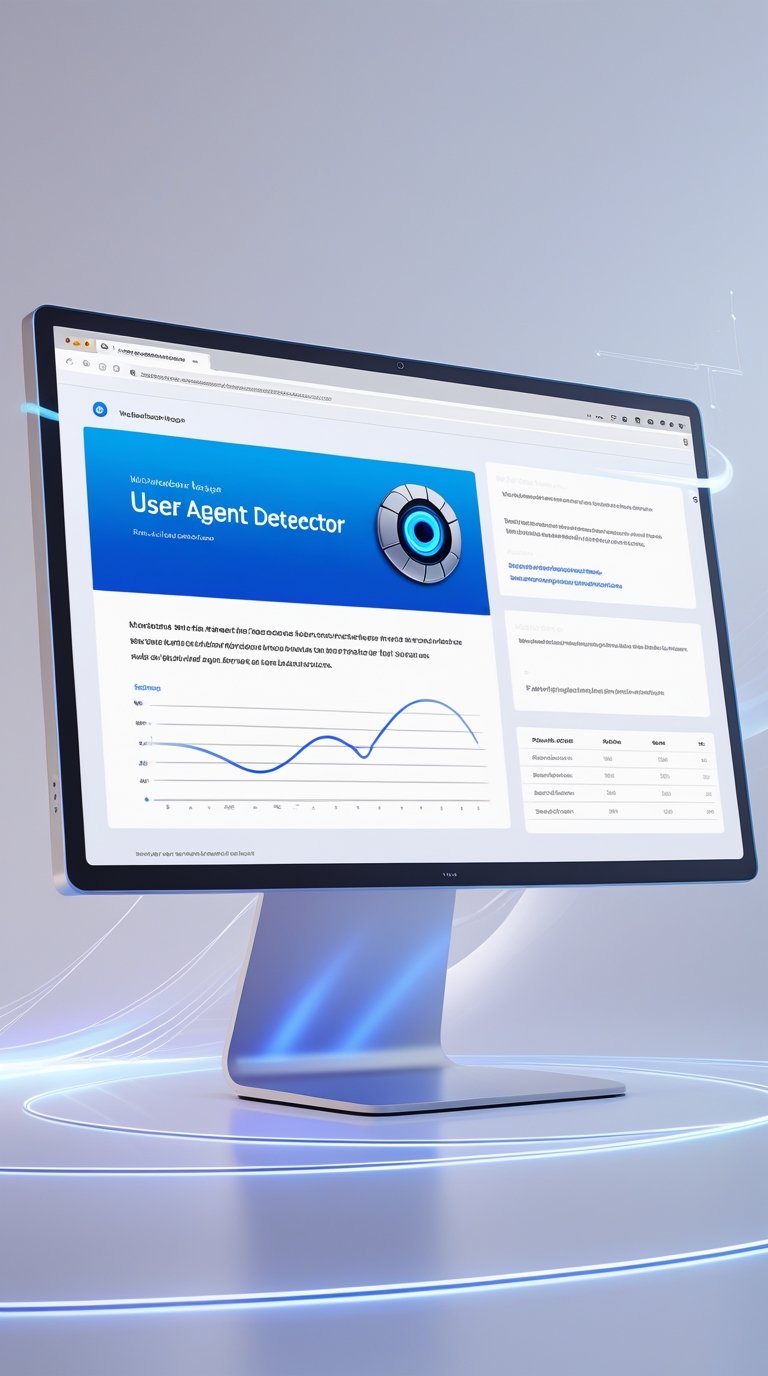
Browser User Agent Detector: Free Online Tool & Complete Guide
Easily identify your browser's user agent string with our free online tool. Learn what user agents are, why they're important, and how they're used in web development and analytics.
Browser User Agent Detector: Free Online Tool & Complete Guide
Have you ever wondered how websites know what browser and operating system you're using? The answer lies in the user agent string. This guide explains what user agents are, why they're important, and provides a free online tool to detect yours instantly.
What is a User Agent?
A user agent is a short string of text that web browsers (and other applications like web crawlers) send to web servers with every request. It identifies the browser, its version, the operating system it's running on, and other relevant information.
Example User Agent String:
Mozilla/5.0 (Windows NT 10.0; Win64; x64) AppleWebKit/537.36 (KHTML, like Gecko) Chrome/114.0.0.0 Safari/537.36
This string tells the server that the user is using Chrome version 114 on a 64-bit version of Windows 10.
Why are User Agents Important?
User agents play a crucial role in various aspects of web development and analytics:
- Content Adaptation: Websites use user agents to deliver optimized content for different browsers and devices. For example, a website might serve a mobile-friendly version to users on smartphones.
- Browser Compatibility: Developers use user agents to test their websites across different browsers and ensure compatibility.
- Web Analytics: User agents provide valuable data for website analytics, allowing website owners to understand their audience's browser and operating system usage. This information can be used to improve website performance and user experience.
- Targeted Advertising: User agents can be used (though less commonly now due to privacy concerns) to target advertisements to specific user demographics based on their browser and operating system.
- Bot Detection: Websites use user agents to identify web crawlers (bots) and other automated tools, allowing them to manage server resources and prevent abuse.
How to Use Our Free Online User Agent Detector
Using our free online tool is simple:
- Visit [Your Tool URL Here - Replace with the actual URL of your tool].
- The tool will automatically detect and display your user agent string.
Decoding a User Agent String
User agent strings can seem complex, but they follow a specific format. Here's a breakdown of the key components of a typical user agent string:
- Mozilla: Historically used by many browsers for compatibility reasons.
- Platform: Indicates the operating system (e.g., Windows NT 10.0, Mac OS X 10.15).
- Rendering Engine: Specifies the browser's rendering engine (e.g., AppleWebKit, Gecko).
- Browser Name and Version: Identifies the browser and its specific version (e.g., Chrome/114.0.0.0, Safari/537.36).
Common User Agent Examples
- Chrome (Windows): Mozilla/5.0 (Windows NT 10.0; Win64; x64) AppleWebKit/537.36 (KHTML, like Gecko) Chrome/114.0.0.0 Safari/537.36
- Firefox (Mac): Mozilla/5.0 (Macintosh; Intel Mac OS X 10.15; rv:109.0) Gecko/20100101 Firefox/109.0
- Safari (iPhone): Mozilla/5.0 (iPhone; CPU iPhone OS 16_0 like Mac OS X) AppleWebKit/605.1.15 (KHTML, like Gecko) Version/16.0 Mobile/15E148 Safari/604.1
Conclusion
Understanding user agents is essential for web developers, analysts, and anyone interested in how websites work. Our free online user agent detector makes it easy to identify your browser's user agent string and gain valuable insights into your browsing environment.
Contact
Missing something?
Feel free to request missing tools or give some feedback using our contact form.
Contact Us